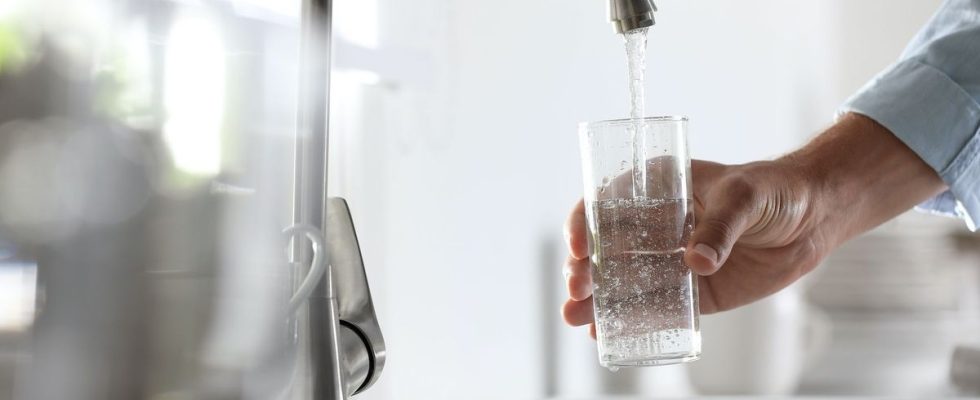Published on
Updated
Reading 3 min.
In Le Monde, 21 water researchers challenge public authorities on the urgency of preserving the quality of our tap water. According to them, targeting PFAS, these eternal pollutants, should be a priority, and for this, several complex projects must be undertaken without delay.
The drinkability of our tap water is a subject that worries consumers more and more. Rightly so, since we now know that per- and polyfluoroalkyl substances (PFAS), also called eternal pollutants, are found there. But how can we better protect our water? In The world21 researchers are calling for more involvement from public authorities to guarantee sustainable drinking water for all.
Perennial pollutants are found in our drinking water
PFAS are a group of chemical compounds used in many consumer products such as non-stick coatings, waterproof textiles and food packaging. These are substances that are poorly biodegradable and have high resistance, which has earned them the nickname “eternal pollutants”.
Without even thinking about water, we therefore consume it regularly without our knowing it. PFAS are currently associated with several adverse developmental effects during growth, hormonal disorders, effects on the immune system and an increased risk of developing certain types of cancer.
Wastewater treatment plants cannot currently eliminate these pollutants
But these PFAS are also found in our tap water, and that’s an additional problem: “Industrial effluents are the main sources of contamination. Domestic wastewater also contains it, but to a lesser extent. However, the treatment plants which receive industrial effluents or domestic wastewater have not been designed to eliminate these molecules” explains the article in Le Monde.
Once treated in these stations, this water is also released into the natural environment, always containing PFAS. ”It is therefore the purification plant which must guarantee the elimination of these molecules in order to achieve the standards in force for water intended for human consumption. Currently, the processes traditionally used in these factories do not allow the elimination of PFAS, due to their high chemical resistance. announce the researchers.
Solutions that are difficult but not impossible to implement
Faced with this challenge, the signatories intend to put pressure on public authorities:
“The objective of the forum is to make it clear that supplementation with bottled water, which many French people turn to, is not a long-term solution. Today, we must put pressure on treatment, but also on regulations, to ensure that tap water obtains the quality required to be consumed without risk. This regulation must apply to industries (and therefore to the sources of pollutants to be eliminated) so that discharge standards are greatly reduced, and while waiting for these sources to be reduced, it is necessary to find solutions to manage polluted environments. , starting with water tables and/or water treatment plants.” tells us Mathieu Gautier, signatory and lecturer at the National Institute of Applied Sciences in Lyon, contacted by Doctissimo.
Several issues are thus recalled by the experts:
- The lack of epidemiological studies currently prevents us from determining beyond which concentration levels there are consequences for human health. “There is a real need to complete this data to finally define the threshold values, production and rejection that can be authorized or not” explains Mathieu Gautier.
- The cost of elimination measures is also a hindrance. “Certain technologies are already operational, such as specific activated carbon filtration, which seems the most effective for this type of pollution, or the use of reverse osmosis. To manage this new pollution, our drinking water production sectors will have to be improved, which involves a significant financial cost”;
- Control of discharges, to protect populations. “As curative measures for the elimination of PFAS are very costly, it is essential to strengthen the protection of populations and the environment from the risks linked to these compounds by adopting preventive measures.” say the experts. Consequently, emphasis must also be placed on the PFAS manufacturing industries, which must imperatively better control their releases into the environment.
- Finally, it becomes urgent to develop ecological substitutes to PFAS.
Issues to be placed at the center of the country’s environmental concerns for these 21 signatories, all concerned about water treatment. “As their name says, eternal pollutants will still be there tomorrow. Even if hypothetically we could stop producing them now, these PFAS would still continue to be present in soil and water because of their persistence. It is therefore urgent to be concerned about it” concludes Mathieu Gautier.
